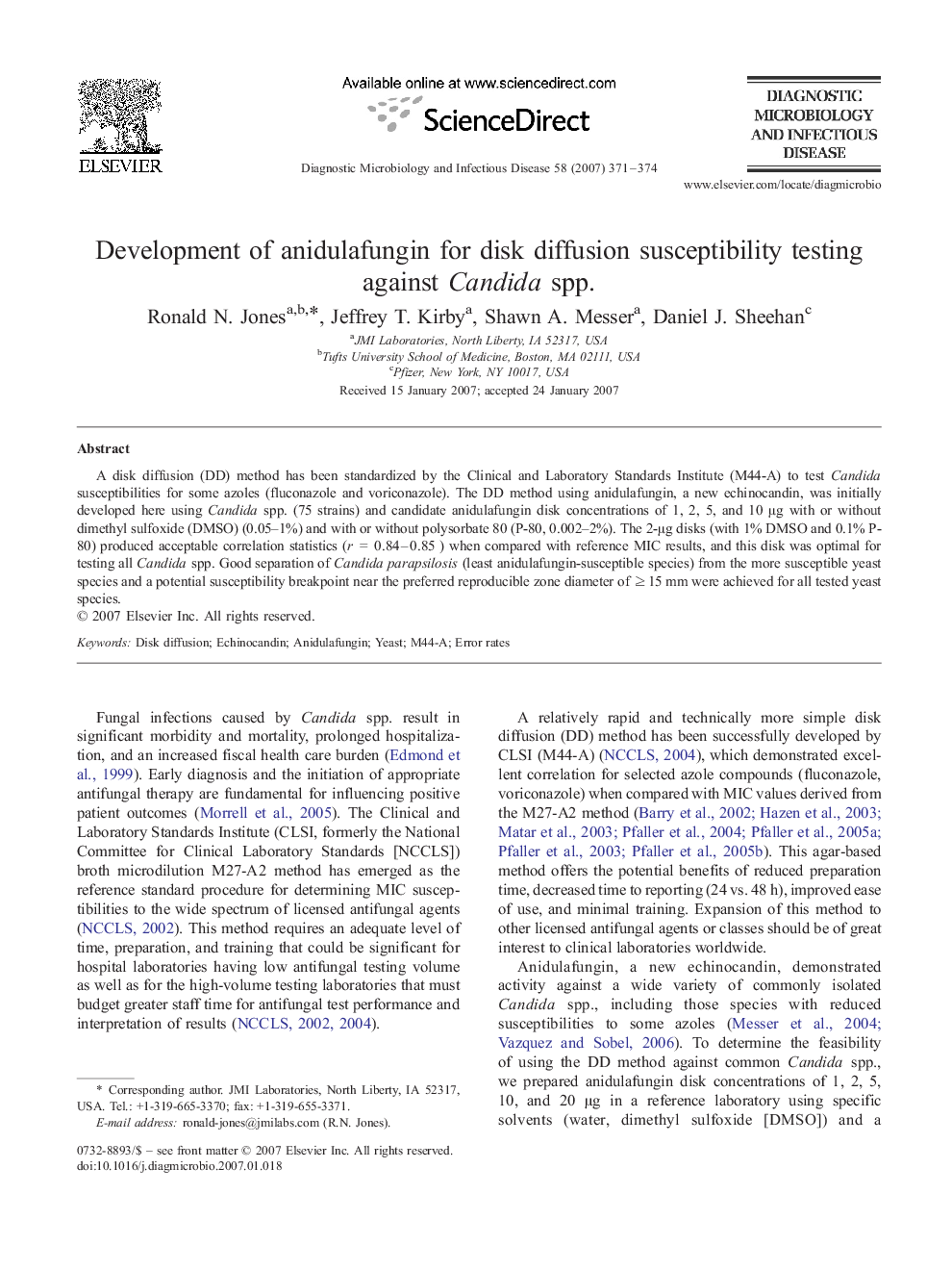| Article ID | Journal | Published Year | Pages | File Type |
|---|---|---|---|---|
| 3348383 | Diagnostic Microbiology and Infectious Disease | 2007 | 4 Pages |
A disk diffusion (DD) method has been standardized by the Clinical and Laboratory Standards Institute (M44-A) to test Candida susceptibilities for some azoles (fluconazole and voriconazole). The DD method using anidulafungin, a new echinocandin, was initially developed here using Candida spp. (75 strains) and candidate anidulafungin disk concentrations of 1, 2, 5, and 10 μg with or without dimethyl sulfoxide (DMSO) (0.05–1%) and with or without polysorbate 80 (P-80, 0.002–2%). The 2-μg disks (with 1% DMSO and 0.1% P-80) produced acceptable correlation statistics (r = 0.84–0.85 ) when compared with reference MIC results, and this disk was optimal for testing all Candida spp. Good separation of Candida parapsilosis (least anidulafungin-susceptible species) from the more susceptible yeast species and a potential susceptibility breakpoint near the preferred reproducible zone diameter of ≥15 mm were achieved for all tested yeast species.
